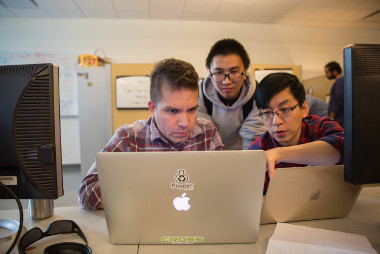Bringing storage up to speed
Storage systems—the software that connects an electronic device’s applications to its disk or solid-state drives—have lagged behind other improvements in computer systems. New applications normally add layers of software to get what they want from storage systems, leading to bloated software and inefficiency.
“Storage systems are complicated and they slow things down,” said Carlos Maltzahn, professor of computer science and director of the Center for Research in Open Source Software (CROSS).

To address this problem, the CROSS team created a uniquely programmable storage system based on Ceph, a widely used, open source storage system also created at UC Santa Cruz. Called Malacology (after the science of molluscs: cephalopod molluscs, like octopi, are agile and have many arms moving in parallel), the new storage system lets programmers tap into existing storage system software and adapt it for new purposes, while retaining code that took years to optimize. The group published their work at the EuroSys 2017 conference.
“Open source software community efforts are allowing innovation to flow much more freely and appear much more quickly on the market than proprietary solutions,” said Maltzahn. He thinks Malacology will help enable innovation and entrepreneurship, ultimately leading to improved computers, smartphones, and other digital technology.

